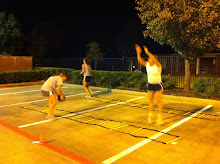Kids, especially younger ones, will eat mostly what's available at home. That's why it's important to control the supply lines — the foods that you serve for meals and have on hand for snacks. Follow these basic guidelines:
•Work fruits and vegetables into the daily routine, aiming for the goal of at least five servings a day. Be sure you serve fruit or vegetables at every meal.
•Make it easy for kids to choose healthy snacks by keeping fruits and vegetables on hand and ready to eat. Other good snacks include low-fat yogurt, peanut butter and celery, or whole-grain crackers and cheese.
•Serve lean meats and other good sources of protein, such as fish, eggs, beans, and nuts.
•Choose whole-grain breads and cereals so kids get more fiber.
•Limit fat intake by avoiding deep-fried foods and choosing healthier cooking methods, such as broiling, grilling, roasting, and steaming. Choose low-fat or nonfat dairy products.
•Limit fast food and low-nutrient snacks, such as chips and candy. But don't completely ban favorite snacks from your home. Instead, make them "once-in-a-while" foods, so kids don't feel deprived.
•Limit sugary drinks, such as soda and fruit-flavored drinks. Serve water and low-fat milk instead.
How to Be a Role Model
The best way for you to encourage healthy eating is to eat well yourself. Kids will follow the lead of the adults they see every day. By eating fruits and vegetables and not overindulging in the less nutritious stuff, you'll be sending the right message.
Another way to be a good role model is to serve appropriate portions and not overeat. Talk about your feelings of fullness, especially with younger children. You might say, "This is delicious, but I'm full, so I'm going to stop eating." Similarly, parents who are always dieting or complaining about their bodies may foster these same negative feelings in their kids. Try to keep a positive approach about food.
Don't Battle Over Food
It's easy for food to become a source of conflict. Well-intentioned parents might find themselves bargaining or bribing kids so they eat the healthy food in front of them. A better strategy is to give kids some control, but to also limit the kind of foods available at home.
Pro-Rated Boot Camp Session
Yay Burpees!

You know it, baby!
Tiff-Fit

That's how we roll!

Monday, January 24, 2011
Subscribe to:
Post Comments (Atom)

















No comments:
Post a Comment